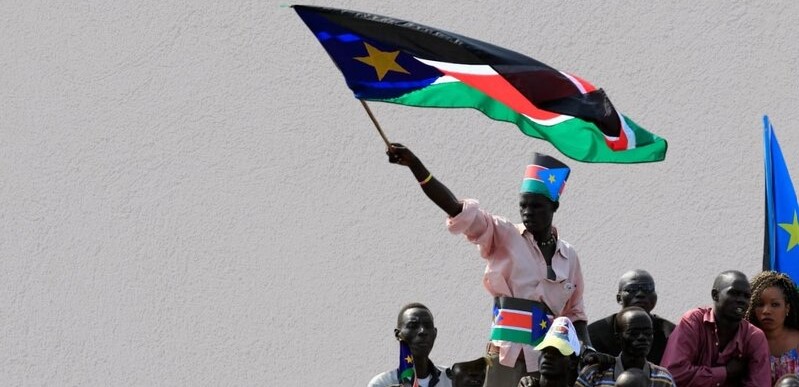The more time the younger and the older people spend together, the more both parties benefit from each other. Children have a warm and infectious energy, which can help to bring much joy to the elderly. Indeed, this article shows that bridging the gap can help boost the confidence, increase communication, and improve the memory of the elderly.
Some children may not be privileged to have their grandparents to share their wisdom and help them to develop many of their academic skills. Furthermore, seniors are often very patient and make great listeners. They can give a child their full attention, which any parent or teacher knows is not always easy to do!
The older generations have accumulated knowledge and life experiences that can be passed down to the younger generations. Wisdom, skills, and life lessons can be shared, helping younger individuals to gain insights and guidance. Likewise, younger generations can offer new, ‘out of the box’ thinking and problem-solving to their elders. This transfer of knowledge helps bridge the generation gap and fosters personal growth.
Intergenerational relationships have been linked to improved health and well-being for both the younger and the older individuals. For elders, engaging with the younger generations can promote a sense of purpose and motivation, reduce feelings of depression and anxiety, and enhance cognitive function. For children and the younger adults, intergenerational bridging can provide a sense of belonging, emotional stability, and a positive outlook on life.
It is an opportunity to not only share history and knowledge about the family, but also about poignant happenings within the lifetime of both parties. Younger generations can provide insights into new technologies, cultural trends, and social issues, while older generations can offer historical context, traditional values, and different perspectives. This exchange of knowledge helps break down stereotypes and enhances understanding.
Sharing and passing down knowledge on history also helps strengthen family bonds and creates a sense of unity. Grandparents, for instance, provide love, support, and a connection to family history. These relationships foster a sense of continuity and identity, passing down traditions, values, and cultural heritage.
Intergenerational relationships provide emotional support and companionship for both younger and older individuals. For the younger people, older mentors or role models can offer guidance, understanding, and a sense of security. Older individuals, on the other hand, often benefit from the energy, enthusiasm, and new perspectives that the younger generations bring. The companionship and mutual support can help combat feelings of loneliness and isolation.
For children, engaging with older adults can help develop communication skills, empathy, respect, and patience. Older adults, on the other hand, can benefit from the mental stimulation and the opportunity to stay connected with societal changes and trends through interactions with the younger generations.
Overall, intergenerational relationships are important for mutual learning and growth, cultural preservation, social cohesion, addressing ageism, emotional support, health and well-being, and personal development. By nurturing and valuing these connections, societies can create a more inclusive, harmonious, and supportive environment for people of all ages.
Other benefits include an opportunity for the seniors to learn about modern technolog, exercise, both physically and mentally, and a chance to dismiss any negative opinions or fears. It is also a way for the children to learn how to care for the elderly and a new routine, which can help to reduce loneliness and depression in the elderly.
If you are looking for some inspiration for activities that work well across generations, here are my suggestions of the things to try:
Storytelling, whether it is swapping life stories or creating new ones, storytelling is a great group or one-on-one activity. Arts and crafts, engage in painting, or pottery to encourage both parties to express their creativity and collaborate on a shared project. Cooking or baking, preparing meals together is a great bonding exercise as well as an opportunity to learn and share recipes, culinary traditions, and skills. Partake in shared hobbies, whether you love gardening, reading, photography or music, pair up with a like-minded soul and enjoy together.
Outdoor activities; take part in nature walks or sports that encourage individuals of different ages to engage. You will not only promote fitness and well-being, but you will learn about the natural environment together too. Volunteering in community projects such as helping at food distribution, cleaning up public spaces, or assisting local charities will not only foster a sense of shared purpose, but also allows the exchange of skills and experiences. In family history projects, one learns about their DNA. Create your family tree, or simply organise photo albums over a shared heritage and learn about the family roots, traditions and values.
A great place to start is by bridging schools and care homes within your community. Celebration is an ideal time to reach out to the elderly. Perhaps you can encourage your children to make their own celebration with the locals. This would be a lovely way to brighten someone’s spirits and make them feel less lonely or forgotten. Creating relationships within the local community brings many benefits to all involved and building connections between the young and the old is sure to bring many happy memories.
The writer, John Titi Tong, is a South Sudanese national. He can be reached via email tongkhamisa446@gmail.com
The views expressed in ‘opinion’ articles published by Radio Tamazuj are solely those of the writer. The veracity of any claims made is the responsibility of the author, not Radio Tamazuj.




